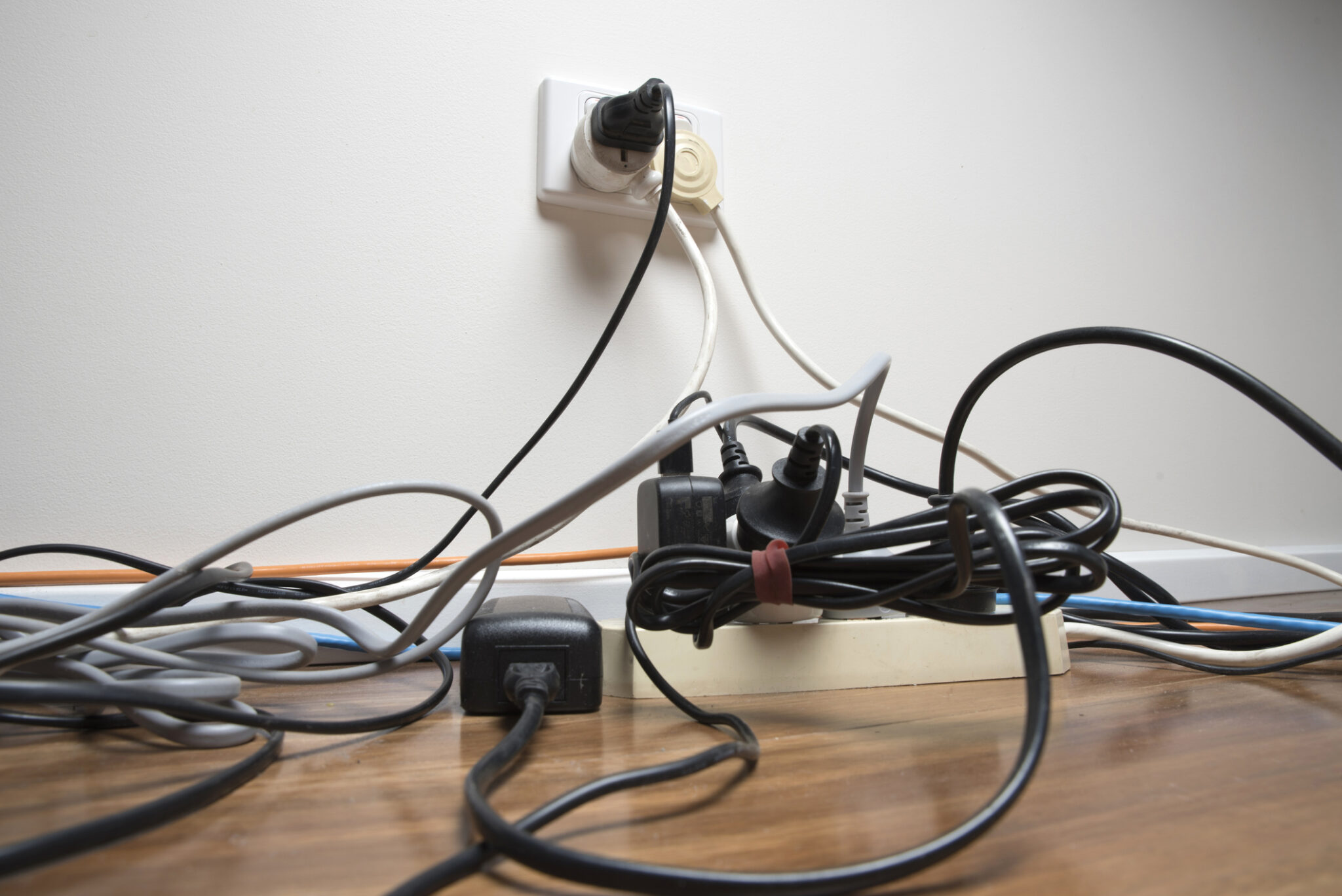 Extension cords can make life easier, however, if used improperly, they can become a fire hazard. Taking a few simple precautions and preventative measures can help protect your family, home, business, and possessions.
Extension cords can make life easier, however, if used improperly, they can become a fire hazard. Taking a few simple precautions and preventative measures can help protect your family, home, business, and possessions.
15 Power Strip and Extension Cord Safety Dos and Don’ts:
- Extension cords should be a short term fix, not a long term solution. Hire a qualified electrician to add more receptacle outlets if needed.
- Check extension cords for damage – cracks, fraying, discoloration, bare wires, loose connections
and a cord that is hot to touch are all signs of damage. Throw out all damaged extension cords. - Use UL listed extension cords only.
- Never use extension cords with major appliances.
- Do not overload power strips and extension cords, avoid plugging extension cords into one
another. - Purchase the right size cord for the job.
- Do not use an indoor extension cord outside.
- Keep all extension cords and power strips away from water, snow, and ice.
- Extension cords or power strips are not to be used with heaters or fans. They can overheat
quickly causing a fire. - Do not run an extension cord under a carpet or rug, through walls, floors or ceilings.
- Never nail or staple extension cords to walls, ceilings or floors.
- Check extension cords to make sure they are not pinched or damaged by doors, windows and
furniture. - Unplug extension cords that are not in use by grasping the plug, not the cord when removing
the plug from an outlet. - Never remove a grounding pin from an extension cord in order to fit it into a two-prong outlet.
- Always store extension cords inside.
Remember, extension cords are intended for temporary use only. By following the precautions above, you are working toward keeping your property safe and protected.